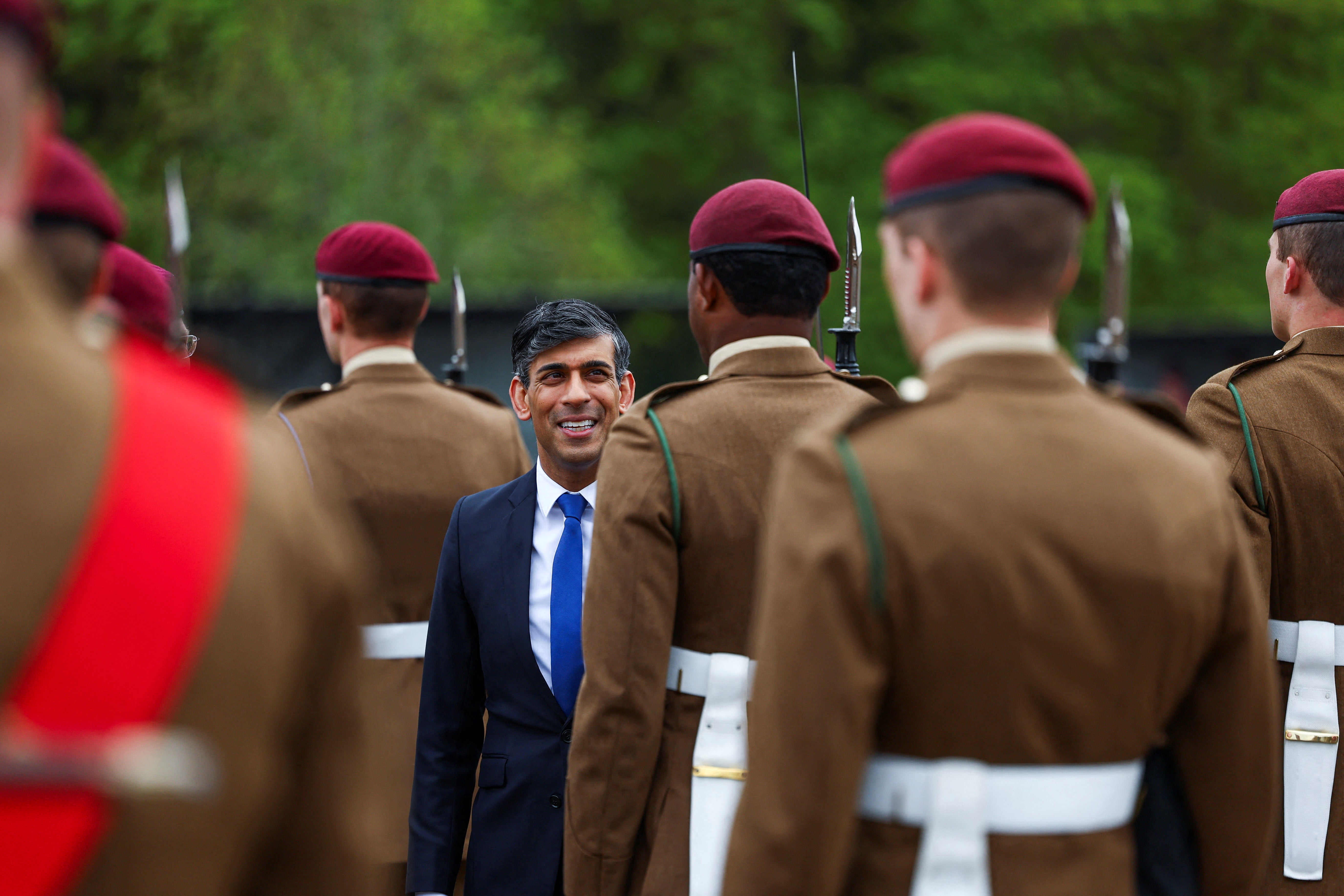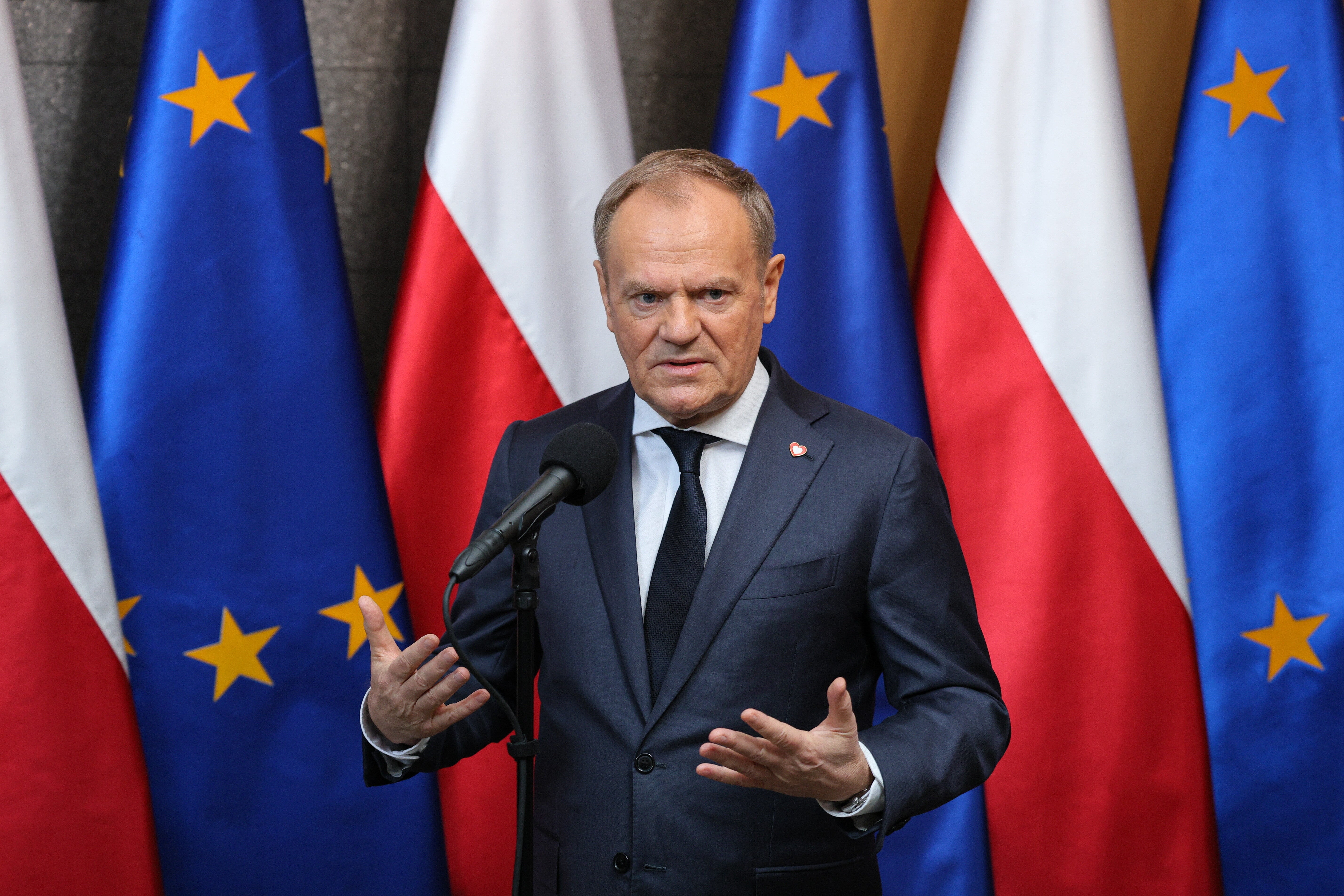How reduced University fees and housing loans could nudge Gen Z into ‘voluntary’ conscription
As the former spy-chief, Sir Alex Younger says that we need to rethink what a new type of national service could look like, defence expert Francis Tusa examines other European models where youngsters who volunteer are given priority when it comes to jobs or housing...

At the beginning of March, Poland outpaced other European nations by announcing plans to introduce universal military service for all men. Speaking in the Polish parliament, president Donald Tusk said: “We will try to have a model ready by the end of this year so that every adult male in Poland is trained in the event of war, ensuring that this reserve is comparable and adequate to potential threats.”
Even though Poland has taken a step that many other European nations are hesitant to take, it is evident that, despite their reluctance, forms of military service are being examined, studied, and debated among European policymakers. And all the signs suggest that the UK will follow suit sooner rather than later.
Nearly a year ago, Rishi Sunak pledged that if the Conservatives won the general election, 18-year-olds would be required to take part in a scheme involving military or civilian service. While Sunak was short on details regarding who would conduct the training or how it would be funded, the proposals were pitched as a “bold new model of national service”.
Participants could opt to spend one weekend per month volunteering in civic roles such as an RNLI volunteer or NHS responder. The country, he argued, needed to be “open and honest” about long-term challenges, and the scheme would provide young people with “real-world skills while contributing to their country and community”.
The plan was quickly derided across the political spectrum, with Justin Crump, a defence expert and veteran of 25 years, capturing the mood when he said the plans were “ill-thought-through” and would be an “enormous potential burden” on Britain’s military. He added: “It’s certainly not the solution to the military’s problems, and I think everyone I’ve spoken to this morning still has their head in their hands.”
However, 12 months on, it no longer seems like such an outlandish idea. Sir Alex Younger told Independent TV this weekend that people in the UK must realise that the threat from Russia – and its closeness to the US – is real, adding: “Putin and Trump together have done their best to persuade us that the rules have changed.” Discussing what needs to be done to prepare, Sir Alex, known as “C” during his time as spy chief, added: “You’d have to ask a soldier about the actual efficacy of things like conscription. I have no idea… I know that it just needs to be a more integrated feature of everyday life.
“I think that will bring broader benefits. So I think this is probably more about a more creative and broader conception of what the reserves is.” The ex-spy chief then told the BBC's Today Podcast that a new type of enrolment should be looked at.
He said: "In extremis, I think we'd be looking at something like the model I understand exists in places like Sweden, where the Government theoretically has the power to compel people to give their service one way or another, but doesn't exercise it except in areas where it's really needed."
As the US becomes a less reliable ally in an increasingly volatile world, Keir Starmer has already announced plans to increase Britain’s defence spending from 2.3 per cent of GDP to 2.5 per cent, reaching 3 per cent by 2034. Meanwhile, defence secretary John Healey has warned that Britain would not be ready to fend off an invasion given the state of its armed forces, and agrees that a recruitment drive is needed to bolster Britain’s depleted military.
With almost a million young people not in education, employment, or training, this group has become a key focus as ministers cut benefits while seeking to strengthen defence. As Rachel Reeves announced substantial cuts to the welfare bill, former Tesco chair John Allan suggested that out-of-work young people should be required to undergo military training in exchange for benefits.
Under the government’s new welfare reforms, those aged 18 to 21 will be given a “youth guarantee” offer of training or employment but risk losing their benefits if they decline. Last week, the chancellor told ITV: “In the changed world we face today, there are opportunities for good jobs in our armed forces, but also in the defence sector that produces the tanks, machinery, and ships that our military uses. And of course, as this government increases defence spending, more good jobs with decent wages will become available in that sector.”

So, could a voluntary national service or conscription “with benefits” soon become a reality?
Conscription ran in the UK from 1916-1920 and again from 1939-1960. It was renamed “national service” after the Second World War. The last national serviceman left the military in 1963, more than 60 years ago. The traditional argument for ending national service was that it consumed too many regular personnel to train conscripts, many of whom were reluctant and of lower quality. A motivated professional force was deemed preferable.
However, a combination of factors has brought the issue back into sharp focus. First, the Ukraine war has demonstrated that small, professional armies, which are costly and limited in numbers, can be quickly depleted. While precise forecasts are difficult, some suggest that the British army’s war-fighting arm, 3rd (UK) Division, could become combat-ineffective within six months in a Ukraine-style conflict due to casualties and exhaustion.
Another challenge is filling recruitment gaps in modern armed forces, a common issue across Europe as populations age. The British army currently has about 71,300 personnel, the lowest number since the Napoleonic era. Of these, only 55,005 are fully deployable (able to serve without medical restrictions). The army’s target is 73,000, yet the Royal Navy alone has missed its recruitment targets for sailors and commandos every year for over a decade.
In Norway, being accepted for national service is sometimes called ‘The Golden Ticket’ because it significantly improves life prospects
For the UK, there are concerns about protecting the home front in the event of war. The current forces can either deploy to Europe alongside Nato allies or stay to defend the UK, but they lack the depth to do both.
The Office for National Statistics states that around 750,000 people turn 18 in the UK each year. The armed forces neither need nor can absorb anywhere near that number of recruits. This brings us to the question of what a new national service model could look like. In the Nordic and Baltic states, there is universal conscription with a twist: not everyone is called up. The armed forces select recruits based on their needs, and people are encouraged to volunteer through a number of incentives.
In these countries, national service is highly valued. In Norway, being accepted for national service is sometimes called “the Golden Ticket” because it significantly improves life prospects. Government jobs are prioritised for those who serve, and many private companies offer fast-track recruitment for national service volunteers. Around 15 per cent of 18-year-olds in Norway (both men and women) are conscripted or volunteer, totalling about 9,000 annually, with numbers expected to rise due to the perceived Russian threat. In Finland, the army can expand from a peacetime strength of 20,000 (including conscripts) to 300,000 within a week in a crisis.

Many countries with military national service also offer civilian alternatives. Sweden and Finland, for example, as Sir Alex Younger pointed to, both provide civil defence options. Those refusing both military and civil service can face imprisonment without parole. Finns living abroad who fail to return for service can have their passports revoked. However, in countries bordering Russia, national service is seen as part of the national culture and duty. By contrast, a study by The Times and YouGov revealed that only 11 per cent of the UK’s Gen Z would be willing to fight for their country in a war.
Could they be persuaded if national service provided tangible benefits?
In the past, British national service helped improve literacy and numeracy by sending illiterate recruits to the Royal Army Education Corps. A modern version could integrate education, offering student loan forgiveness or education vouchers for those who serve. Extending service commitments of, say, up to five years could result in complete student debt cancellation or preferential financial backing for property purchases. As in Norway, those who serve could receive priority for civil service jobs, making national service an attractive opportunity.
Ultimately, national service need not replicate the model of the 1950s and 60s. The military once numbered over 350,000 personnel, but today, only a fraction of the 750,000 18-year-olds each year would be needed – perhaps 10-15,000 for military service and a few thousand more for civilian roles.

Bringing back national service would require a major cultural and mind shift in the UK. However, proven models from European countries are being closely examined. Unless Russia collapses, a version of national service seems increasingly likely within the next five years.
To make it work, though, the UK must shed outdated negative perceptions of national service and recognise its broader societal benefits. In an age where young people are increasingly isolated by algorithms and social media, engaging them in shared experiences that promote national values could be a profoundly positive step – if done well.
Francis Tusa is editor of Defence Analysis
.png?quality=75&width=230&auto=webp)





Join our commenting forum
Join thought-provoking conversations, follow other Independent readers and see their replies
Comments